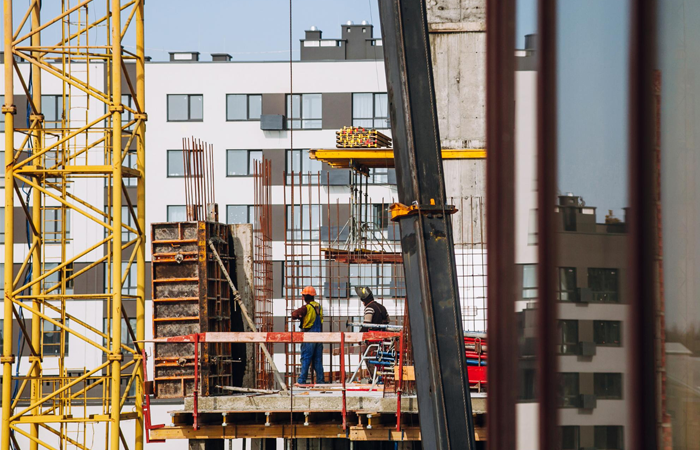What do you know about Quebec’s new housing construction market?
Whether it is rental or new housing, the housing shortage is impacting the entire real estate market. In the 18th episode of the Real Estate in Motion podcast series presented by the Quebec Professional Association of Real Estate Brokers (QPAREB), Guillaume Houle, public affairs manager for the Association de la construction du Québec, helps us to better understand the situation here in Quebec.

Portrait of the 2023 Quebec construction market
Between 35,000 and
38,000 unit starts were projected for 2023, which is low compared to previous
years. “To put it in perspective, we have built, on average, around 50,000
housing units per year over the past 10 years,” explains the public affairs
manager. “The 2023 housing start rate is the lowest recorded in the last two
decades.”
Impact of inflation
The rise in inflation
observed in 2023 has had repercussions on the construction market in Quebec. Rising interest rates and the borrowing capacity of builders have played a major role.
“Imagine entrepreneurs who have had to borrow millions of dollars to get
projects off the ground, buy materials and pay for labour. Only when the
project is completed can they see a return on their investment,” mentions
Guillaume Houle.
The public affairs
manager also points out that entrepreneurs must borrow at interest rates that
can reach 6%, 9%, even 10%, which represents colossal sums. “We are attacking
not only the viability of a project, but also the affordability of the units that
will be built,” specifies the specialist.
In addition, the profit
margins required by financial institutions are no longer realistic. Previously,
these were between 6% and 12%, whereas, today, they are from 4% to 8%. This
turnaround has a direct impact on the financial guarantees that banks now require.
Homeownership for families
Does this mean that
homeownership will be more difficult for families? Most likely. “Taxpayers have
reached their capacity to pay and the CMHC’s research is quite eloquent on the
subject. Housing affordability is under attack. And since there is less new
construction, existing units sell at higher prices,” maintains Guillaume Houle.
As the cost of new
construction has become exorbitant, only large-scale private projects,
sometimes amounting to millions of dollars per unit, are being built. “Builders
are realizing that they must not only cater to a better-off clientele, but also
to middle-class clients […] who would like to become homeowners, but who are
currently unable to do so,” notes the expert.
For Guillaume Houle, we
should be building all types of new homes, whether it be upscale housing, houses for the middle class or social housing. In this regard, the
Quebec government recently announced a budget of $1.8 billion for the
construction of approximately 8,000 social housing units. The CMHC believes
that we need to build an additional 860,000 housing units by 2030 to resolve
the situation.
What do the next few years look like?
Asked about the demand
for housing over the coming years, Guillaume Houle envisions a two-phase
approach. The first concerns increasing productivity within the industry with a
view to reducing construction costs. “When we look at Quebec’s heavy, restrictive
regulations governing the construction trades, we see a lack of adaptability,”
according to the ACQ spokesperson.
On the other hand, the
financial aspect also plays an important role. In order to regulate the market,
the Government of Canada has introduced a temporary measure that removes the
GST for new residential rental construction. According to Guillaume Houle, the
Quebec government and financial institutions could implement similar actions as
early as 2024, for example, by offering preferential interest rates.
There are, therefore, several possible actions that can be implemented to stimulate the new construction market and alleviate the housing crisis currently affecting Quebec.
Article written in collaboration with:

See also:
Keeping Up with Real Estate Market Trends
 The Largest Number of Homes for Sale
The Largest Number of Homes for Sale




